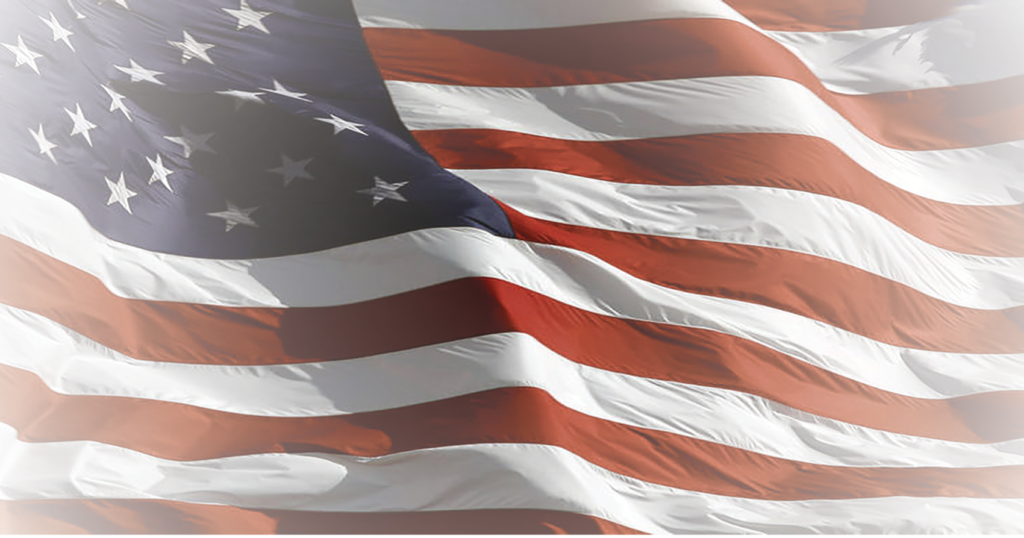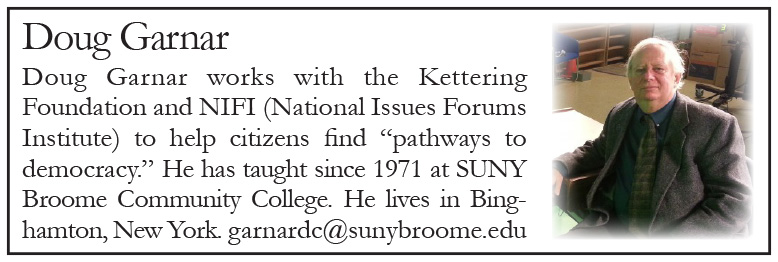Pathways to Democracy
American Democracy: A Time of Hope or Despair?

“Many forms of Government have been tried, and will be tried in this world of sin and woe. No one pretends that democracy is perfect or all-wise. Indeed, it has been said that democracy is the worst form of Government except all those other forms that have been tried from time to time.”
Winston Churchill, House of Commons, November 11, 1947
On February 17, 1941 Henry Luce, media magnate and founder/owner of Time & Life magazines, published an editorial calling on America to assume the role of global leadership for the planet, despite the formidable authoritarian powers of the Soviet Union, Nazi Germany, Fascist Italy and the Empire of Japan. Essential to his argument was that American economic, political and cultural values gave America an exceptional role to play in elevating humanity from the lives of beasts to lives slightly lower than angels. The idea of “American Exceptionalism” has a long history dating back to the Pilgrims and their “City on a Hill’. In Luce’s latest version from this time forward the concept of the “American Century” would become the dominant political paradigm.
The defeat of the totalitarian Axis Powers left only the Soviet Union with its acquisition of nuclear weapons (1949) to stand in the way of a “Pax Americana.” A “Bi- Polar” world ushered in by the nuclear weapons revolution led to the concept of two Superpowers, the Soviet Union and America, and a Cold war between the two that lasted from 1947 to 1989. The fall of the Berlin Wall and two years later the peaceful collapse of the Soviet Empire, that led political pundits of the time to argue that history had come to an end, resulting in the triumph of liberal/democratic capitalism. Some even argued that America had become the world’s first “Hyper Power.” President George H. W Bush’s coalition of Western powers, along with Japan and the acquiescence of China and Russia, led to the decisive defeat of Saddam Hussein’s effort to take over Kuwait. How America would continue to develop a New World Order would occupy white male foreign policy planners (Colin Powell and Madeline Albright notwithstanding) for the next decade. Then came 9/11 and for the next 20 years Democratic and Republican Washington elites continued to forge policies, both domestic but more so military/foreign policy, predicated on the idea that the American Century would continue for the foreseeable future. But the two decades that followed have demolished a new world order based on a Pax Americana—a state of relative international peace regarded as overseen by the US.
Heraclitus, an ancient Greek philosopher, argued that the world is in a constant state of change—that one could never twice step into a river in the same exact place. The last 20 years would drive this home in ways we are still grappling with today.
Consider the following issues:
Climate change induced by the human use of fossil fuel—droughts, rising temperatures; increasing numbers of severe hurricanes now costing on the average (per event) of $1 billion in property damage; extreme weather patterns etc.
Rise of pandemics, COVID-19 and its multiple variants are only the latest.
Less than 25 years from now America will be a majority nation of minorities, resulting in severe white angst over their identity.
A growing divide in America of not Blue vs. Red States, but one rooted in urban vs. rural.
A sense that American Democracy is teetering on collapse with the January 6, 2021, insurrection as only the latest piece of evidence.
Racism/sexism still abound, joined by a chorus of cries to have schools and legislatures dictate how history will be taught and demands that books need to be banned.
The best the Republican and Democratic parties could offer American voters in 2020 were a failed incumbent and an uninspiring career politician.
Unlike the rhetoric of JFK, the torch has not been passed to a new generation of political leaders who can envision the means to tackle the aforementioned problems. So, what course of action might American citizens embrace to help reinvent our democracy?
Consider the following:
Dr. David Mathews of the Kettering Foundation has argued that we need to envision a new relationship between citizens and government/public institutions—one rooted in the idea that citizens work with government/public institutions. Voting is not the beginning and end of being a citizen.
Activities which explore the rich potential of citizens working with governmental/public institutions include among other things: working on local boards dealing with election practices, environmental issues, community policing, school curriculum etc..
Faith communities can play a useful role in working with public entities. A small example is that my church is beginning conversations with our local high school (across the street from the church) about how in the event of a school emergency students can be taken to the church in the short term. I am hopeful that such conversations might lead to other discussions, such as how the church can provide space for after school activities (a computer lab; badminton and tutoring of student among other things).
Working with government/public institutions and not for profits, citizens could promote community summits to begin discussion of major issues. In Broome County, substance abuse, homelessness and poverty (including food insufficiency) continue to plague the area. A one size fits all plan to tackle these issues is doomed to failure given the rural/urban dichotomy of the area. Recognizing the diversity of the county is important
The power of education to promote civically engaged students should be cultivated. A K-15 civic education/engagement thread could be developed. Teaching young children how to identify a problem and develop a solution is an ongoing process which can be reinforced in middle school through the senior year’s Participation in Government course. At the community college there is now a SUNY general education requirement to promote civically engaged students.
The arts (plays, dance, and music in particular) offer creative lenses to look at important civic issues.
The importance of understanding history can’t be underestimated. All history is a series of endless revisions—some useful while others are detrimental to society. One example is the growing belief among some in our country that the Holocaust did not occur. Drawing on the 1st Amendment, such dangerous myths are spread. This is complemented by the banning of books such as Maus, Brave New World, The 1619 Project, 1984, To Kill a Mockingbird, The Handmaid’s Tale, The Color Purple, Captain Underpants (series) and the list goes on.
Promotion of community conversations focusing on the end of the Pax Americana. A great book to use for such deliberation is Andrew Bacevich’s After The Apocalypse: America’s Role In a World Transformed. Bacevich ends his book by observing, “The facts, the facts, the facts, and then the feelings with no room for illusions.”
There are endless activities citizen can choose from to improve communities, but they all require one important feature—the sacrifice of time. In the mid 1980s Neil Postman wrote a seminal work, Amusing Ourselves to Death. Core to Postman’s book was the idea that TV, and now all forms of social media create a distraction from what really matters. Consider the recently concluded Super Bowl or the recent emergence of electronic sports betting in NYS, which has seen over 2 billion dollars wagered in its first month of existence. There are pockets of engaged citizens ranging from children to senior citizens but many more are needed. As the snows and cold nights recede with the arrival of spring, so let our democracy reinvent itself and may the readers of this column be part of that renewal!
• Questions or observations about this column may be directed to Doug Garnar at garnardc@sunybroome.edu
